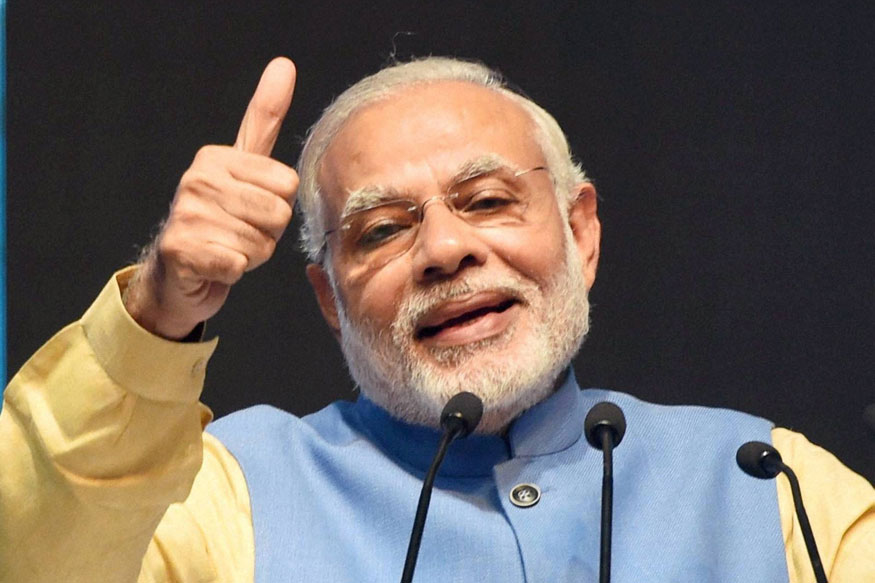As per a recent ET report, Labour Minister, Santosh Gangwar has said that the Centre is planning to introduce ‘One Nation, One Pay Day’ system to safeguard the interests of workers employed in the formal sector, particularly the working class. Addressing the ‘Security Leadership Summit 2019’ organised by the Central Association of Private Security Industry (CAPSI), Gangwar said, “There should be a pan-India single wage day every month across various sectors to ensure that workers get timely payment of salaries. Prime Minister Narendra Modi is keen on this legislation to get passed soon. Similarly, we are also looking at uniform minimum wages across sectors which will safeguard better livelihood of workers.”
It is also important to mention here that in the recent past Modi government has taken up the issue of labour reforms. India faces a complex set of several labour laws and now in order to ensure simpler labour laws and norms, the Centre is looking to unify the labor laws, by enacting comprehensive and exhaustive Codes. As of now, the government is in the process of implementing the Occupational Safety, Health and Working Conditions (OSH) Code, and the Code on Wages. The Parliament has already passed the Code on Wages. The Code on Wages replaces four Acts- the Payment of Wages Act, 1936; the Minimum Wages Act, 1948; the Payment of Bonus Act, 1965; and the Equal Remuneration Act, 1976, dealing with the system of Wages. Labour Secretary Heeralal Samariya said, “Now 60% of workers are not covered under the Minimum Wages Act. The new law will give the right to minimum wages to the entire 50 crore workforce.” It is therefore clear that unification of labour laws is going to ensure simplicity and wider coverage in the country’s labour laws. Moreover, the Code also proposes a uniform floor wage below which minimum wages for a specific industry or state cannot fall. Currently, there is a complex minimum wage system with different minimum wages prescribed in different states and further division of minimum wages for different industries.
Similarly, the OSH Code is going to end the era of multitude of labour laws dealing with safety, health and working conditions. Once implemented, 13 central labour laws dealing with the subject will be unified into the single Code. It includes many new initiatives such as mandatory issues of appointment letter by employers, annual free medical check up of workers and broadening coverage of all type of workers under the Code.
Speaking about such labour law reforms, Gangwar said, “We have taken up 44 complex labour laws to reform them. We are talking to all stakeholders to make these laws more effective and useful.” He added, “Similarly, we are preparing a ‘Single Page’ mechanism for various sectors to complete various compliances to ensure ease of doing business. We are also preparing an online system of all grievance redressal to ensure that all problems are resolved with 48 hours without any physical interface.”
Apart from the Code on Wages and the OSH Code, the Modi government is also looking at a Code on Social Security, which will unify eight different laws relating to social security benefits of workers across different industries.
The enactment of the Codes is going to make compliance with the labour laws a lot easier and simpler. Companies will no longer require multiple registrations under a plethora of labour laws, as the Modi government has proposed one licence, one registration, and one return for establishments. Take the Code on Occupational Safety, Health and Working Conditions (OSHW), 2019, the establishments will need only a single registration to comply with this subject. Currently, there are 13 Central labour laws and six different registrations are needed.
It must be noted that ever since the Modi government came at the helm of affairs, there has been a constant improvement in India’s ‘Ease of doing business’ rankings. This year the rankings went upto the 63rd position compared to the 142nd rank in the year 2014. This has been a result of reforms like the Goods and Services Tax (GST) and the Insolvency and Bankruptcy Code (IBC). Now, India is targeting breaking into the top 50 countries in the list, and reforming its archaic and complex labour laws can go a long way in achieving this object.
The recent tax cuts have already made India a very attractive option for investors. With the big bang corporate tax break implemented by the Modi government, India has already become one of the most competitive corporate regimes in the world. Now if the Modi government can complement it with labour law reforms, then it will be that much of an added advantage for India.
